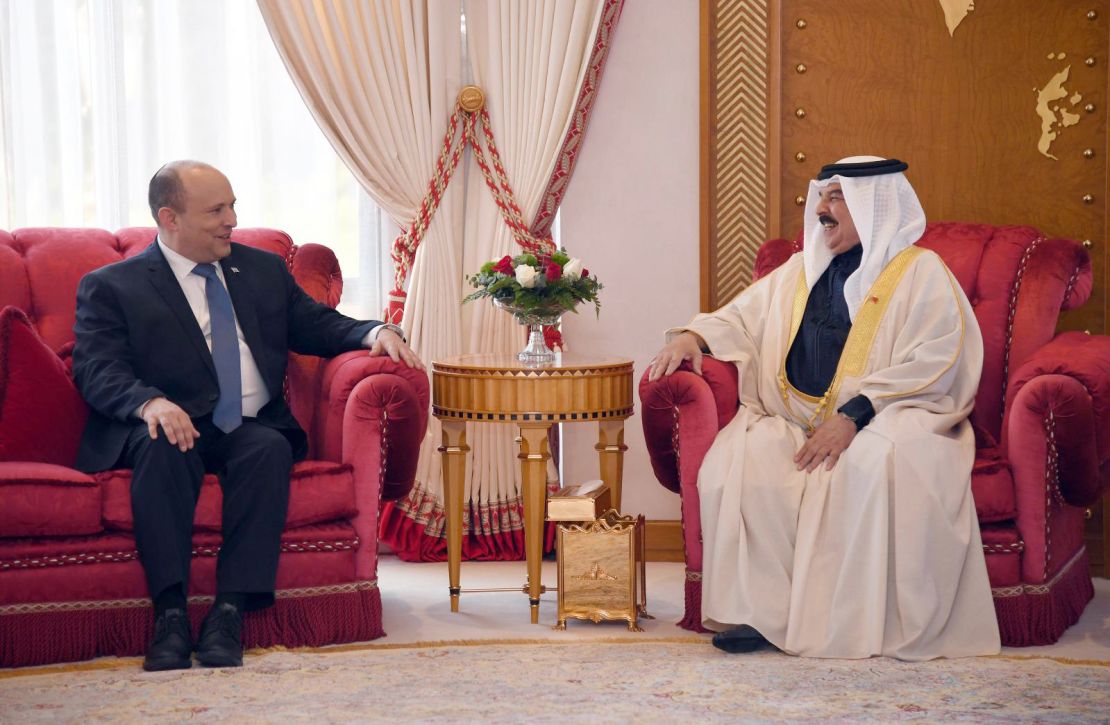Perceived disengagement by the United States in the Middle East has led to a strategic shift in regional priorities of late.
Alarms about the withering of America’s security umbrella perhaps rang loudest in Arab capitals after a 2019 attack on the heart of the Saudi economy prompted a reaction from Washington that was whimpering at best.
The thinking was that if Donald Trump, arguably the US President closest to Gulf states to date, couldn’t help them, then no American administration would. The US was seen as abandoning the Middle East.
Blamed on Iran, the brazen predawn attack on state-run oil giant Saudi Aramco’s facilities knocked off half of Saudi crude output, sending oil prices climbing 19.5%, the most on record.
Historically, an unwritten agreement between America and its oil producing Arab allies stipulated that the US would provide protection in return for a steady supply of crude to the global economy from a region that is home to more than two-thirds of the world’s proven oil reserves. The US has often leaned on the Gulf states to adjust output if the price of a barrel doesn’t suit its economic interests, and Arab states have often obliged.
But Arab concern about the unraveling of this arrangement has led to stubbornness when it comes to Arab oil policy and, perhaps more importantly, it has prompted some countries to address the very sources of threats to their security.
The United Arab Emirates, which had been militarily active in several regional hotspots, last summer opted to steer its foreign policy towards “good neighborliness” and economic interests. It began talks with regional foes such as Iran, reconciled with Turkey, reached out to regional pariah Syria, and signed a peace agreement with Israel. The message was that the foreign policy would work to future-proof its economy as well as its security.
But a shock came in January, when it became the target of fatal attacks by Yemen’s Houthi rebel group two years after it began withdrawing its military forces from that country. The Iran-backed Houthis said the strikes were in response to continued Emirati interference in Yemen’s affairs.
The United States, which has been trying to reach a new nuclear agreement with the Houthis’ patrons in Tehran, found itself thrust back into the region’s spotlight. President Joe Biden, who had removed the Houthis from the US terror list less than a month into taking office in 2021, said he would reconsider the move. The UAE, one of America’s closest allies in the region, pushed for more action, including military support.
And the US has so far obliged. This month, it sent Gen. Kenneth “Frank” McKenzie, head of the US Central Command, to the UAE to reinforce the country’s defenses by helping it target drones before they are launched. It is also deploying a destroyer with guided missile defense capabilities to patrol the UAE’s waters, and a squadron of F-22 fighter jets arrived in Abu Dhabi this week.
With its immediate focus on Russia’s troop buildup on Ukrain’s borders, , as well as its medium-to-long term eye on China’s growing power, the United States’ military interests are shifting away from the Middle East. A conclusion of the Iran deal is likely to dampen its threat perception and the very reason for its strong presence in the region, leading to a further disengagement.
But, wary of leaving a security vacuum for its adversaries to fill, the message America appears to be sending Gulf states is that while it may be leaving, it will be back as the need arises.
Other top Middle East news

Israeli prime minister offers ‘goodwill and cooperation’ on first Bahrain visit
Naftali Bennett met Bahrain’s king as well as Crown Prince Sheikh Salman bin Hamad al-Khalifa, who said he is looking forward to “a broader Middle East, free of conflicts, based on principles of mutual respect, understanding, and shared responsibility towards security.”
- Background: This is the first visit to Bahrain by an Israeli prime minister and comes a year and a half after the two countries agreed to normalize relations. Bennett’s trip was his second to a Gulf state, after he visited the United Arab Emirates in December.
- Why it matters: This is the latest sign of the strengthening ties between some Gulf states and Israel. Shared regional security concerns, in particular fears over Iran, played a key part in underpinning normalization. Among Bennett’s first appointments Tuesday was a meeting with US military officials at the Bahrain headquarters of the US Fifth Fleet.
Iranian president to travel to Qatar for gas forum
Iranian President Ebrahim Raisi will travel to Qatar on Thursday to attend the Gas Exporting Countries Forum in Doha, Iran state-run outlet IRNA said on Monday. This comes as the two gas-producing countries look to “boost cooperation and convergence in energy policies.”
- Background: Saudi Arabia, Bahrain, the UAE and Egypt severed diplomatic ties with Qatar in mid-2017 after accusing it of supporting terrorism, which Qatar has repeatedly denied. Tehran and Doha maintained close ties throughout the three-year boycott.
- Why it matters: Raisi’s trip to Qatar is his first to a Gulf-Arab state since he took office and it comes amid the backdrop of multiple attacks by the Iranian-backed Yemen’s Houthis on the United Arab Emirates over the last month.
Swedish multinational Ericsson admits it may have inadvertently funded ISIS
Shares in Ericsson plummeted on Wednesday after the telecommunications company released the results of an internal investigation which found that the firm could have made payments to ISIS, Reuters reported.
- Background: Ericsson started doing business in Iraq after the United Nations lifted an embargo on the country in 2010. The company discovered suspect payments made to circumvent Iraqi customs laws, which were paid in areas that were controlled by ISIS at the time.
- Why it matters: Previous corruption allegations in countries such as China and Vietnam cost Ericsson more than $1 billion in 2019.
Around the region
A conference in Egypt on the African continent’s shared heritage caused an outcry and a flurry of racist comments in the North African country last week.
Titled ‘One Africa: Returning to the Source,’ the event was scheduled to take place in Aswan, Egypt on February 25 and 26, coinciding with US commemorations of Black History Month.
The event brochure said it aimed to show that “all African cultures and peoples are linked together either through ethnicity, language, arts, or culture.” Among the hosts was Washington, DC-based IKG Cultural Resource Center, an organization that focuses on what they call the “re-discovery of ancient African history and culture.”
But in early February, English hashtags such as #StopAfrocentricConference and similar Arabic ones began trending on social media. Some called on Egypt’s Ministry of Antiquities and Tourism to shut down the seminar. The opposition was primarily to the perceived linking of ancient Egyptians to Black people. The debate even found its way to state-backed television, where prominent talk show host Nashaat Eldeehy said the organizers were “racist” and had a “bias toward dark skin.”
The backlash on social media turned ugly, with hundreds of commenters hurling racist insults at cultural historian Anthony T. Browder of IKG, one of the conference’s main presenters. Soon after, the event was declared canceled on Browder’s Facebook page and his page subsequently became unavailable. The cancellation was due to administrative reasons and its “possible negative impact,” he told CNN.
As the debate raged, others on social media decried the harsh language used as “racist” and “hateful.”
New York-based Akhet Tours, one of the conference’s organizers, didn’t respond to requests for comment.
One of the most intensely studied peoples of antiquity, ancient Egyptians have long been the subject of interest for researchers trying to identify their racial origin, culture and way of life.
In 2017, scientists in Germany were able to extract and decode mummies’ genome data. In what was a wholly new frontier for Egyptologists, researchers found a strong connection with groups of ancient non-African populations based east of the Mediterranean. The study only sampled Middle Egypt, however, hypothesizing that race origins could differ in Northern and Southern Egypt.
“There is no relation between Blacks and the origin of the ancient Egyptian civilization at all,” said Zahi Hawass, a prominent Egyptologist and former Minister of State for Antiquities Affairs, in a phone interview from Cairo. Bemoaning what he saw as “a completely incorrect” linking of Blacks to Egyptian civilization by the event organizers, he said the matter should nevertheless be debated by scientists, not lay people on social media.
Given the size of the ancient Egyptian civilization, crossover between ethnicities must have taken place, said Salima Ikram, an Egyptologist at the American University in Cairo. “Egypt, from quite early on, was a mixed culture because it is at the crossroads of two continents,” she said.
Mostafa Waziri, secretary-general of Egypt’s Supreme Council of Antiquities, said that the ministry was unaware of the conference and the events that followed.
Egypt has said of late that that it’s taking steps to support and encourage cultural and economic cooperation across the African continent, emphasizing shared interest and calling for deeper regional integration.
Black Arabs of sub-Saharan African origin in the Middle East and North Africa suffer social marginalization and unequal job prospects, and sometimes experience derogatory portrayals in the media, including in Egypt.
What to watch
Turkish President Recep Tayyip Erdo?an visited the United Arab Emirates on Monday in his first trip to the country in almost a decade. The two nations have found themselves on opposing sides of the ideological spectrum over the last decade, but are now ready to reconcile their differences. Jomana Karadsheh describes the scenes as “absolutely stunning.”
Picture of the day



